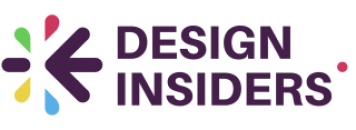
Understanding the Web Consultant's Role
Defining the Role of a Web Consultant
In today's rapidly evolving digital landscape, web consultants have become essential players in the field of web design and development. A web consultant primarily serves as an expert guide, steering businesses through the complexities of creating an effective online presence. Their role is not just limited to crafting visually appealing websites, but also extends to ensuring these sites are functional, user-friendly, and aligned with the business objectives.
Understanding what a web consultant does requires delving into the breadth and depth of their responsibilities. At its core, their role is a balancing act between creativity and functionality, which we will explore further in upcoming sections. A web consultant might oversee various web development stages, offering insights on aspects ranging from website design to digital marketing strategies, ensuring that the project fulfills its intended purpose.
An integral part of a web consultant's duty is providing consulting services that assess and analyze a company's current online presence. This involves closely collaborating with web designers, developers, and even SEO specialists to enhance a website's visibility and reach in the competitive digital market. The ability to bridge gaps between different teams is crucial, driving successful outcomes by integrating diverse perspectives.
Moreover, web consultants leverage their expertise to identify potential design and development pitfalls, offering resolutions that are both innovative and efficient. Given the dynamic nature of web technologies, staying updated with the latest trends and tools is vital—a topic that will be further addressed in subsequent discussions.
The significance of color psychology in website consulting, for instance, plays a vital role in converting visitors into customers. For further insights into how color psychology can impact web design, check out our detailed exploration on this topic.
Bridging Creativity and Functionality
Balancing Innovation with Functionality
In the digital landscape, a successful web consultant acts as the link between creativity and functionality. This delicate balance is essential in ensuring a website is not only visually compelling but also user-friendly and efficient. Web consultants master the art of integrating design innovation within practical frameworks, thereby enhancing the website's usability and maintaining its aesthetic appeal. To bridge this gap, a consultant must delve into the myriad aspects of web design, balancing the artistic elements with technical functionalities. This includes ensuring the website operates seamlessly across devices and platforms, making adaptability a priority in website development. By focusing on responsive design, consultants help businesses optimize their sites for an enhanced user experience that meets both aesthetic and navigational needs. Moreover, web consultants guide businesses in aligning their digital marketing and SEO strategies with their design goals. This synergy fosters a cohesive online presence that appeals to both users and search engines. Therefore, a consultant should work closely with design developers to create an innovative site that captivates users while ensuring functionality. For a deeper understanding of how design consultants create unforgettable user experiences, check out this resource on UX Design for Mobile: Creating Unforgettable User Experiences on Smartphones. The insights from this source can further illuminate how combining creativity with functionality is vital for resonating with users in today's fast-evolving digital market.Enhancing User Experience
Elevating User Interactions with Innovatively Designed Experiences
In the dynamic realm of digital presence, enhancing user experience stands as a cardinal task for web consultants. Ensuring a website not only looks aesthetically pleasing but is also intuitive and responsive forms the foundation of successful web design and development. A site's usability is the primary catalyst that converts a visitor into a dedicated user, making it imperative for a web consultant to prioritize designing an experience that's seamless and user-friendly.
Web consulting integrates a thoughtful approach in harmonizing innovative design with practical functionality. The consultants strive to strike a balance that captivates the audience while catering to their navigational needs. This marriage of creativity and usability gradually shapes how end-users interact with a digital product, amplifying user satisfaction which, in turn, aligns with business objectives through increased engagement.
With a keen emphasis on user metrics, web consultants employ various design and development strategies. From assessing user flow to ensuring responsive design elements that adapt to varied devices seamlessly, the consulting process strives to address potential usability issues holistically (for more insights on this, read about the importance of full-screen testing in design). This meticulous approach not only helps refine the user interface but substantially contributes to enhancing the overall user experience across a wide array of websites and platforms, be it a basic WordPress blog or a full-fledged e-commerce site.
Moreover, the integration of user-centered principles within the strategic web development and design processes reflects the agility and foresight of a proficient consulting agency. Their expertise extends to understanding user behavior and tailoring digital marketing strategies accordingly, subsequently elevating a business's online presence and SEO ranking.
For businesses and agencies aiming to make a significant mark in the digital world, leveraging the expert services of a dedicated web consultant paves the way for designing a comprehensive and rewarding user experience. This not only maximizes engagement but also fortifies their digital standing in an ever-evolving online marketplace.
The Importance of Collaboration
Building Productive Partnerships
The significance of collaboration in web consulting cannot be overstated. In the digital era, the web consultant acts as a linchpin connecting various stakeholders involved in the website design and development process. By facilitating open communication between clients, designers, developers, and marketers, web consultants ensure that everyone is aligned towards a shared vision.
The collaborative efforts in website development begin with understanding the business’s goals and how they are translated into a functional online presence. Effective collaboration allows for seamless integration of user experience (UX) principles into the design, creating websites that are both visually appealing and user-friendly. Consultants coordinate with designers to produce sites that reflect the brand’s identity while prioritizing usability.
Integrating Cross-Functional Skills
Web consultants possess a versatile skillset that blends technical knowledge with creative acumen. They not only speak the language of SEO and digital marketing but also understand the nuances of web development. This cross-functional expertise is crucial in delivering consulting services that cater to diverse business needs. By collaborating with design consultants and development teams, they ensure the feasibility of design ideas in practical web development.
Furthermore, web consultants collaborate with marketing departments to ensure content is optimally structured for search engine visibility, thus enhancing the site's reach and effectiveness. Their role involves navigating potential challenges, mediating between different teams’ expectations, and laying the groundwork for launching a successful and effective site. Such strategic alliances expand beyond immediate project deliverables, fostering long-term business growth and sustainability.
Navigating Design Challenges
Overcoming Design Roadblocks Through Effective Strategies
When it comes to navigating design challenges, the role of a web consultant is indispensable. They act as a linchpin between creative concepts and practical application, ensuring that potential obstacles in the web development process are effectively addressed. Web consultants bring a wealth of experience and expertise, allowing them to foresee challenges that can impact user experience, site performance, and overall website development.
One significant aspect that web consultants tackle is aligning creative vision with functional demands. By working closely with a design consultant or agency, they help strike a balance where creativity enhances functionality instead of hindering it. This involves careful planning and iterative development consulting practices to ensure the website not only looks appealing but is also user-friendly and SEO-optimized for digital marketing success.
Communication and collaboration are critical when overcoming these design challenges. By fostering a productive dialogue between web designers, developers, and business stakeholders, web consultants make sure that every party’s vision and requirements are considered. This integrated approach helps in making informed decisions that benefit the website consulting project as a whole.
Additionally, introducing innovative digital solutions and keeping up with the latest trends in web consulting ensures that potential pitfalls are turned into opportunities. Effective utilization of new technologies can streamline processes, enhance user engagement, and eventually lead to a more robust and adaptable online presence.
Finally, consultants provide invaluable assistance by helping businesses adjust their strategies to anticipate and respond to evolving market demands. Whether it's adapting to new SEO strategies, implementing responsive design principles, or leveraging new web development frameworks, web consultants are crucial in steering projects clear of common pitfalls, ensuring long-term success for the websites they develop.
Future Trends in Web Consulting
Emerging Trends in the Field
The landscape of web consulting is continuously evolving, with new trends shaping the way consulting services are rendered. To stay ahead, web consultants must embrace these changes and adapt their current methodologies. Here are a few trends making a significant impact:- Personalization and AI-Driven Experiences: With advancements in AI, digital experiences on websites are becoming more personalized. Web consultants need to integrate machine learning tools to offer tailor-made site experiences that resonate with users.
- Integration of Augmented and Virtual Reality: While traditionally seen in gaming and entertainment, AR and VR are making their way into the business sector. Consultants in web and design services will benefit from understanding how to incorporate AR and VR features to enhance user engagement.
- Focus on Sustainability: More businesses are prioritizing eco-friendly practices and designs. Web consultants can improve their services by suggesting sustainable hosting solutions, reducing carbon footprints, and promoting ethical design practices.
- Increased Emphasis on Accessibility: With regulatory measures becoming stricter, creating an inclusive audience experience is no longer optional. A design consultant must ensure that website designs meet accessibility standards, making sites usable for everyone, including those with disabilities.
- Advanced SEO Techniques: As mentioned previously, optimizing websites for search engines is crucial. Web consultants will continuously refine strategies, from voice search optimization to integrating comprehensive social media marketing analytics.














